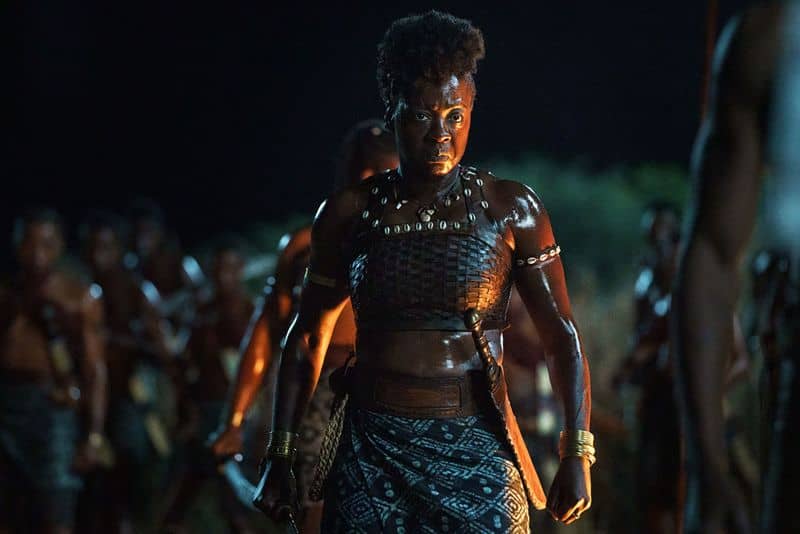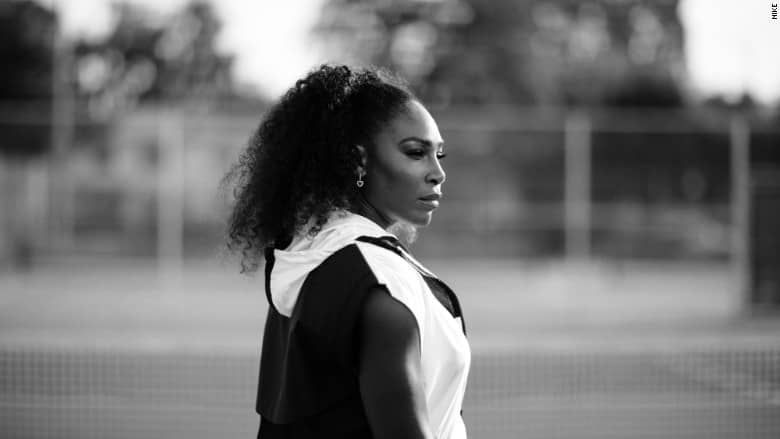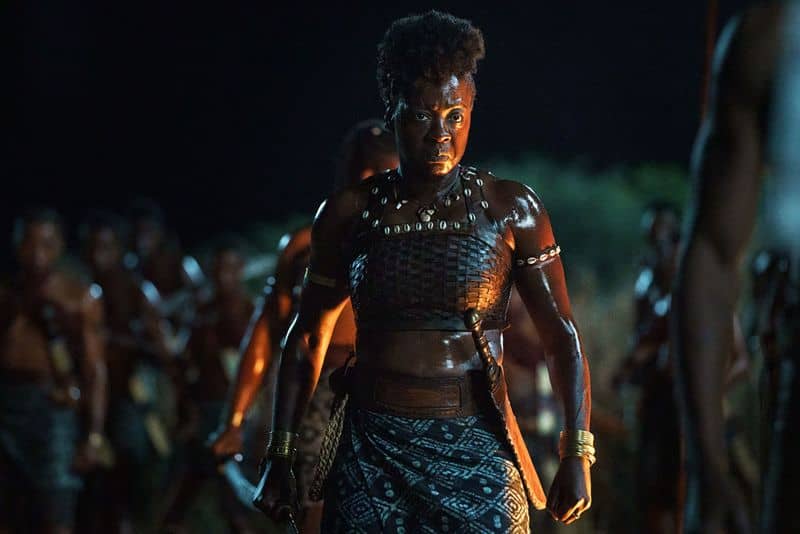Although “inspired by true events,” “The Woman King” clearly isn’t tethered to them, using the underlying story of 19th-century female warriors in an African kingdom as the jumping-off point for a rousing

Nike says it’s time to stand up for equality in a new ad campaign.
The company on Sunday launched a star-studded short film titled “Equality” to mark Black History Month.
The ad features Nike-sponsored athletes LeBron James, Serena Williams, Kevin Durant, Gabby Douglas, among others, “amplifying their voices in an effort to uplift, open eyes and bring the positive values that sport can represent into wider focus,” the company said.
Actor Michael B. Jordan voices the film, and singer Alicia Keys performs a rendition of Sam Cooke’s “A Change is Gonna Come.”
“Is this the land history promised?” Jordan says. “Here, within these lines, on this concrete court, this patch of turf, here, you’re defined by your actions — not your looks or beliefs.”
Nike will feature ads from the campaign on social media, billboards and posters throughout cities in the United States and Canada. It will also sell “Equality” branded T-shirts and shoes as part of its annual Black History Month collection.
Apparel from the campaign will be worn by Nike athletes during NBA All-Star weekend.
Nike said it is donating $5 million this year to organizations like MENTOR and PeacePlayers, which it says “advance equality in communities” across the country.
Related: Pro-Trump boycott calls follow Super Bowl ads
Nike’s new campaign comes one week after numerous companies launched ads about inclusion and acceptance during the Super Bowl.
Budweiser, 84 Lumber, Coca-Cola (COKE), Airbnb, Kia and Tiffany (TIF) were among the brands that features messages about immigration, equality and environmentalism.
— CNNMoney’s Ahiza Garcia contributed to this story.
CNNMoney (New York) First published February 12, 2017: 12:51 PM ET
Don't Miss
CNN — Formula One world champion Lewis Hamilton has announced he will have a team competing in the inaugural all-electric
NASCAR champion Kyle Larson experiences the lowest-lows and the highest-highs Kyle Larson sits down with Coy Wire and reflects on
Although “inspired by true events,” “The Woman King” clearly isn’t tethered to them, using the underlying story of 19th-century female

Although “inspired by true events,” “The Woman King” clearly isn’t tethered to them, using the underlying story of 19th-century female warriors in an African kingdom as the jumping-off point for a rousing action vehicle, augmented by plenty of melodrama. That combination yields a strong showcase for the stars, featuring a cast and backdrop that serves to refresh its old-school formula.
Regal as always, Viola Davis provides the movie with its rock-solid core as General Nanisca, the leader of the Agojie, known as the Dahomey Amazons, a unit of women who swear off marriage and motherhood to pursue martial arts and defend the kingdom. It’s an egalitarian streak within a society where the king (John Boyega) still possesses a sprawling harem.
The point of entry into this warrior culture comes by way of Nawi (“The Underground Railroad’s” Thuso Mbedu, with another mighty performance against a vast canvas), an independent-minded, headstrong young woman who refuses to marry for money, finally prompting her frustrated father to drop her off at the palace.
There, she’s taken under the wing of Izogie (Lashana Lynch, adding to an action resume that includes “Captain Marvel” and “No Time to Die”), and trained to undergo the brutal regimen that will eventually admit her into this corps of elite troops.
The boot camp that follows – which will surely serve as a source of inspiration for modern-day workout programs – proceeds in concert with preparation for potential war against a rival kingdom, the Oyo Empire, that has extorted tribute from the Dahomey for years. Nanisca, meanwhile, urges the king to depart from his participation in the slave trade, arguing that selling captured foes to the Europeans has created “a dark circle” as they increasingly intrude upon their lands.
‘My body went through hell’: Viola Davis on training like a warrior for upcoming film
Directed by Gina Prince-Bythewood (“Love & Basketball”), the sweeping contours of the story are, quite simply, a lot to digest, especially with the various subplots and Nanisca’s back story that gets tossed into the mix. (The script is by Dana Stevens, who shares story credit with actor Maria Bello.)
Shot in South Africa, the film helps bridge some of the expository gap by opening with a brutal action sequence, demonstrating just how fierce Nanisca and her loyal soldiers can be. It’s the first of several such encounters, and although the scenes are carefully shot to mitigate gore, the level of violence and form of warfare are such that the PG-13 rating seems questionably generous.
Nanisca worries that her warriors “do not know an evil is coming,” a tease for the pending battle against the Oyo. But “The Woman King” perhaps excels most in portraying this fascinating subculture given the time and place, playing like a celebration of African traditions while incorporating a decidedly modern tone, and still servicing the escapist demands of a Friday-night audience.
Prince-Bythewood has accomplished that last goal with brisk pacing and the sheer muscularity of the exercise, with a significant assist from Terence Blanchard’s epic score. With its heavily female and almost entirely Black cast, the movie could give a welcome boost to other projects that have historically struggled in terms of studio support.
Somehow, the film manages to feel like a throwback to the action movies of old while featuring people who were seldom allowed to occupy prominent roles back then. If the finish is a bit too busy to be as rousing as intended, by then, “The Woman King” has made the most of its formidable arsenal.
“The Woman King” premieres September 16 in US theaters. It’s rated PG-13.
Don't Miss
Nike says it’s time to stand up for equality in a new ad campaign. The company on Sunday launched a
CNN — Here is a look back at the events of 2023. January 3 – Republican Kevin McCarthy fails to
Unlimited 2% cash rewards — Cardholders earn an unlimited 2% cash rewards on purchases, with no categories to activate or earnings

CNN
—
The gap between a star performance and the movie containing it has seldom been wider than in “Blonde,” which features Ana de Armas stunningly capturing the look and essence of Marilyn Monroe in the service of a film that’s pretentious, heavy handed and lengthy to the point of exhaustion. Netflix will surely get its money’s worth attention-wise thanks in part to its restrictive NC-17 rating, but the film’s merits burn out long before its credits ever roll.
Adapted from Joyce Carol Oates’ novel about the Hollywood icon by writer-director Andrew Dominik (“The Assassination of Jesse James by the Coward Robert Ford”), the movie works from the premise that not only did the frozen-in-time star suffer because of the men around her, but also the society (that is, us) that leered at her even in the pre-Internet age. It’s not a fresh take or a wrong one, but the tone is so self-conscious and surreal as to blunt those insights.
Blurring fact and fiction, “Blonde” begins with the very young Norma Jeane and her relationship with the mentally disturbed mother (Julianne Nicholson) who was forced to give her up, returning time and again to the idea that the she never stopped pining for the father she didn’t know, while seeking to replace him with the famous men who wooed, wedded and exploited her.
Norma Jeane is eventually transformed into Marilyn Monroe, but even then she consistently speaks of her star persona in the third person, as if the image stands apart and utterly separate from the human being behind it.
The irony is that as much as the New Zealand-born director labors to humanize Marilyn – after numerous movies based on her life, including several for television – this version fares best in depicting the familiar image through replicating scenes from her films. De Armas and the staggering hair/makeup/costume work present those moments so uncannily (occasionally mixed with footage of Monroe’s co-stars) that you have to blink to make sure it’s not the real thing.
Ana de Armas transforms into Marilyn Monroe in Netflix’s ‘Blonde’
Beyond that, the film gruelingly drags on through unhappy interludes of the actress being used and abused, oscillating between color and black-and-white imagery in a way that feels arbitrary. Dominik also distastefully deals with Monroe’s lost pregnancies by peeking at the fetus inside her, which becomes symbolic of just how overdone much of the movie is.
Those excesses can’t entirely eclipse the fearless and vulnerable nature of de Armas’ portrayal, and she’s probably right in contending that the NC-17 rating (a guidance suggesting only adults be admitted to theaters) is undeserved, given similarly edgy fare that hasn’t received it. Then again, the label seems on surer footing contemplating the film’s overall grimness than its sexuality.
Several supporting roles are also impressive, with Bobby Cannavale and Adrien Brody as Monroe’s husbands Joe DiMaggio (again shown grimacing through “The Seven Year Itch” shoot) and playwright Arthur Miller, respectively.
Still, “Blonde” is almost wholly de Armas’ show, and to the extent it’s worth sitting through at all give her every ounce of credit. When she tells DiMaggio, “I’ve been happy all my life” in Monroe’s honeyed voice, the lie is as unconvincing as it is heartbreaking.
Netflix is providing the movie the now-customary brief theatrical run after making its debut at the Venice Film Festival, but homes are surely where it’s most apt to be watched, especially given its 2 hour, 46 minute running time.
In a private setting, viewers will be able to take all the breaks they need to weather the experience, but they won’t be able to escape the film’s relentlessly lurid, in-your-face approach. Indeed, once you get past admiring de Armas’ immersion into the role, that’s the only itch that “Blonde” seems to know how to scratch.
“Blonde” premieres September 16 in select US theaters and September 28 on Netflix. It’s rated NC-17.
Don't Miss
Nike says it’s time to stand up for equality in a new ad campaign. The company on Sunday launched a
CNN — Here is a look back at the events of 2023. January 3 – Republican Kevin McCarthy fails to
Unlimited 2% cash rewards — Cardholders earn an unlimited 2% cash rewards on purchases, with no categories to activate or earnings









